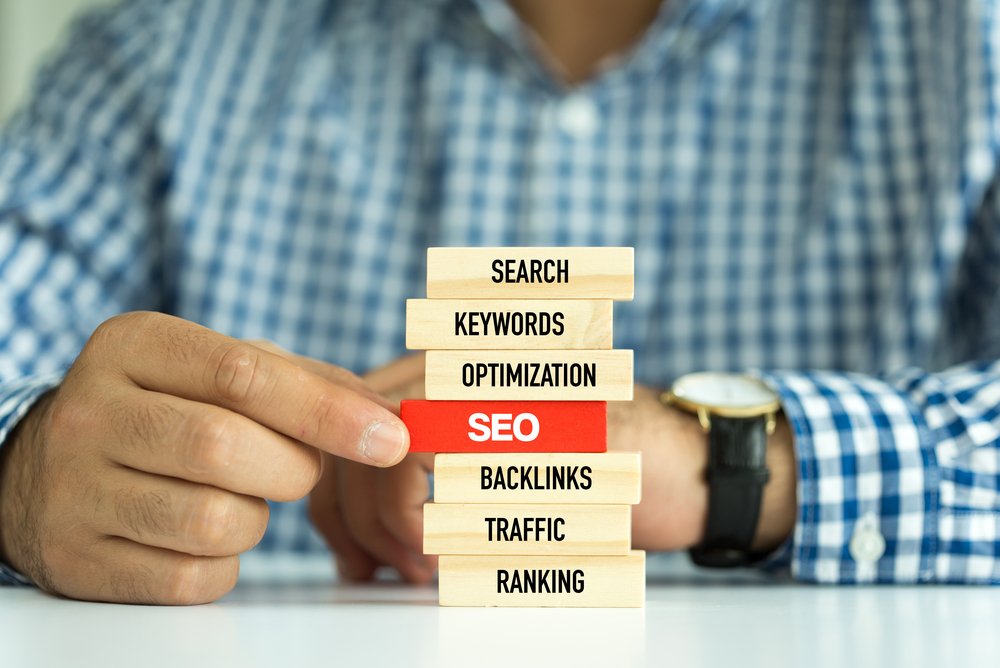At its best, SEO can be a golden ticket to getting your brand in front of the right online users at the right time. But at its worst, it’s one of the most complex and confusing realms within digital marketing – one that often seems to come with more questions than answers.
At V Digital Services, our team of SEO experts is no stranger to questions about the “how” and “why” of search engine optimization. And while there’s always a wide variety of SEO questions to cover, one of the most commonly asked is: How long does it take to see SEO results?
Of course, this question is one that makes perfect sense, because if you’re spending the time and effort (and money!) on SEO, you want to know when you can look forward to a return on investment. It would be hugely helpful if there were a cut and dry answer that told you exactly when you could expect to see results from SEO.
Unfortunately, it’s not quite that simple – we can’t give you an exact timeframe that tells you when the SEO magic will “activate.” But what we can do is take a closer look at the specific strategies of SEO and why each one matters so that you can take a smarter approach to fast-tracking your site to SEO success.
Seeing SEO Results: First, an Answer to Your Question
At this point, you might be pretty disappointed that you’re not going to get the answers you came for. After all, that’s probably what brought you to this blog post in the first place, right?
Before you feel too let down, we will say this: while it’s true that we can’t give you an exact answer for how long SEO takes to produce organic improvements, there is a general time range that most experts agree is accurate.
Taking a handful of factors into consideration, four to six months seems to be the point at which brands start to see an uptick in organic ranking and traffic.
The Search Engine Journal explains that small markers of success could be visible very early on, but that significant growth is something you’ll likely have to wait for:
“You might begin seeing improvements in organic ranking and an increase in traffic for keyword topics with little competition in just a few weeks. On the other hand, moderately competitive topics might take months, while highly competitive phrases could even take one year or more!”
So, that’s the short and sweet answer to how long it takes for SEO to result in gains. But if you’re ready to dig a little deeper into how you can do everything possible to speed up the process, keep reading.
Factors that Affect How Long SEO Takes
You might already be well-aware that SEO results can be impacted by a wide range of factors, including:
- The authority level and age of your website
- Your site’s backlink profile
- Hosting issues, errors, or penalties
- SEO-friendly architecture, structure, and design
- Keywords and your competitors
- Your content strategy
- Both on- and off-page SEO strategies
You undoubtedly want quick results from SEO – so does just about every website owner. But unrealistic expectations can be a serious blow to even the most well-crafted SEO strategy. The fact is that SEO takes a considerable amount of time, effort, and work, and is a process that is never truly “complete.” Near-instantaneous gains aren’t just virtually impossible; they’re also completely unsustainable.
And what’s more, a too-quick jump in ranking is actually a red flag in the eyes of Google. In these cases, black hat tactics are almost always at play. Black Hat SEO is a series of strategies that essentially cheat the system, and it’s not going to take your business anywhere good.
Instead, for website owners trying to figure out how to get faster SEO results, patience and perseverance are the true keys.
How the Age and Authority of Your Website Comes into Play
Most SEO experts agree that older website domains appear to see faster results from SEO efforts, as compared to more recently-created domains. The reasoning for this most likely lies in the fact that older websites generally have more backlinks, which helps them build more trust.
Larger content libraries and clicks based solely on name recognition are other factors that benefit most older domains.
From the perspective of a major search engine like Google, this makes the age and authority of a website one of the primary contributors to ranking.
If you’re starting from scratch, don’t feel like you’re fighting a losing battle right off the bat. This simply means that your website will have to put SEO best practices to good use. With a little work and smart strategizing, you can start working your way up the rankings.
Using SEO Best Practices to See Faster, Better Results
 Here’s more information about each of the factors that contribute to the efficacy of your SEO (and how quickly it works), so you can create a website that performs and ranks better in the long term.
Here’s more information about each of the factors that contribute to the efficacy of your SEO (and how quickly it works), so you can create a website that performs and ranks better in the long term.
Link-building
Building links is easily one of the most time-consuming parts of improving SEO rankings, but it’s a non-negotiable when it comes to acing the Google algorithm. But when you’re consistently producing high-quality, engaging content, the links will come naturally.
A few tips for building links:
-
- Tap into the power of social media marketing to get your content out there, capitalizing on the opportunity to generate authentic engagement.
- Work smarter, not harder, by considering ways to repurpose existing content into useful snippets and easy-to-scan short posts.
- It can be tempting to try to take a shortcut by using paid links, which used to be an effective approach to rapid results. However, paid links are now considered a misleading SEO strategy, so you won’t be gaining any ground.
- Focus on building up a collection of useful links from reputable sources – your backlink motto should be “quality over quantity.”
By taking the time to construct a strong backlink profile, you’ll basically be proving your site’s trustworthiness to Google and making progress to legitimate results.
Hosting issues, errors, or penalties
There’s no point in working to boost SEO results if there are existing problems waiting to be resolved. Issues like Google penalties, SEO errors, and poor website hosting require recovery time, so get those out of the way as soon as possible. Depending on how many broken links, 404 errors, 301 redirects, or optimization issues your site has, you could see SEO progress as soon as two weeks after fixing them.
Keep in mind that all of your changes won’t be indexed at the same time, which means that you could see some improvements before others. Google has to discover those changes by recrawling the webpage, which is not something that happens instantly.
Other SEO issues that are all-too-common include:
-
- Sitemaps
- Problems with robots.txt and crawling
- Errors within components of your site’s linking structure or architecture
SEO-Friendly Structure, Architecture, and Design
The importance of your site’s design, URL structure, and CMS system should not be underestimated, especially when you’re hoping to increase traffic and ranking.
Here are a few of the most important things to remember when considering your structure, design, and architecture:
Mobile optimization
Now that our smartphones and tablets are at the core of nearly everything we do, creating a responsive design for mobile use has never been more critical. Not only does this ensure that your site works on all devices, but it also supports better ranking. Google currently prioritizes mobile pages when crawling for rank and indexing, so you want to make sure that you’re towards the front of the line.
CMS
Your chosen CMS should offer a wide range of SEO capabilities, and it should also be search engine friendly. When deciding on a CMS, make these two features at the top of your list of priorities.
Large CSS and JavaScript files
These files are linked to external files, so you should be factoring that in when you’re planning and making edits.
Keyword and competitors
Rather than asking, “how long does it take for keywords to work on Google?” try reframing your focus. Take a closer look at your competitors, particularly those that seem to have mastered the art of topping search results.
Here’s how analyzing your fiercest competition can pay off when it comes to SEO:
-
- Once you learn the keywords that your competitors are using to attract traffic, specifically the words and phrases connected to your shared industry, you can refine your own approach.
- Rather than trying to build something out of nothing, you’ll have a helpful idea of where to start when creating your own keyword strategies.
- With tools like SEMRush, you can break down all the most valuable aspects of a competitor website, from the top organic keywords to their traffic numbers. Being able to examine each with a virtual magnifying glass can teach you a lot about how to improve your own site.
Content strategy
The core of any website is its content, making a content strategy vital – if you don’t have one, get one. Achieving SEO results is heavily dependent on how effectively you’re able to create consistently high-quality content. Without excellent content, your website is facing a losing battle in rankings.
If possible, connect with a professional that understands the complexities of crafting engaging content that contributes to SEO. They can help you build a strategy that incorporates Google ranking factors, ongoing algorithm updates, and more.
On- and off-page SEO
On-page SEO is one of the most effective routes to fast results, which is why so many people tackle it first. Not only can on-page optimization produce sustainable improvements, but you can also see the payoff as soon as a few days after.
Here are the elements to adjust when zeroing in on on-page SEO:
-
- Header
- Anchor text
- Title
- Alt tags
- Meta tags
- Descriptions
Off-page optimization requires more time, but is nevertheless important:
-
- Comment on relevant blogs
- Social media sharing
- Look for quality citations and directories
- Consider guest blogging
Make sure that you’re authentic in your efforts; otherwise, you run the risk of being categorized as spam.
Streamline Your SEO Strategy with Help from V Digital Services
Now, you know that there’s no definitive answer to how long SEO results take – but there are definitely things you can do to make your SEO work better and faster.
Ultimately, one of the smartest investments you can make in your digital marketing strategy is to partner with a professional in SEO. With their extensive industry knowledge, experience, and skill, the right SEO expert can give you an edge over your competition.
For more information about how our SEO team can help you implement an SEO strategy that works like you want it to, contact V Digital Services today.
Image Credit: Shutterstock / Rawpixel.com
Shutterstock / Garagestock


 eat definition, Google standards, seo, YMYL definition
eat definition, Google standards, seo, YMYL definition PREVIOUS
PREVIOUS